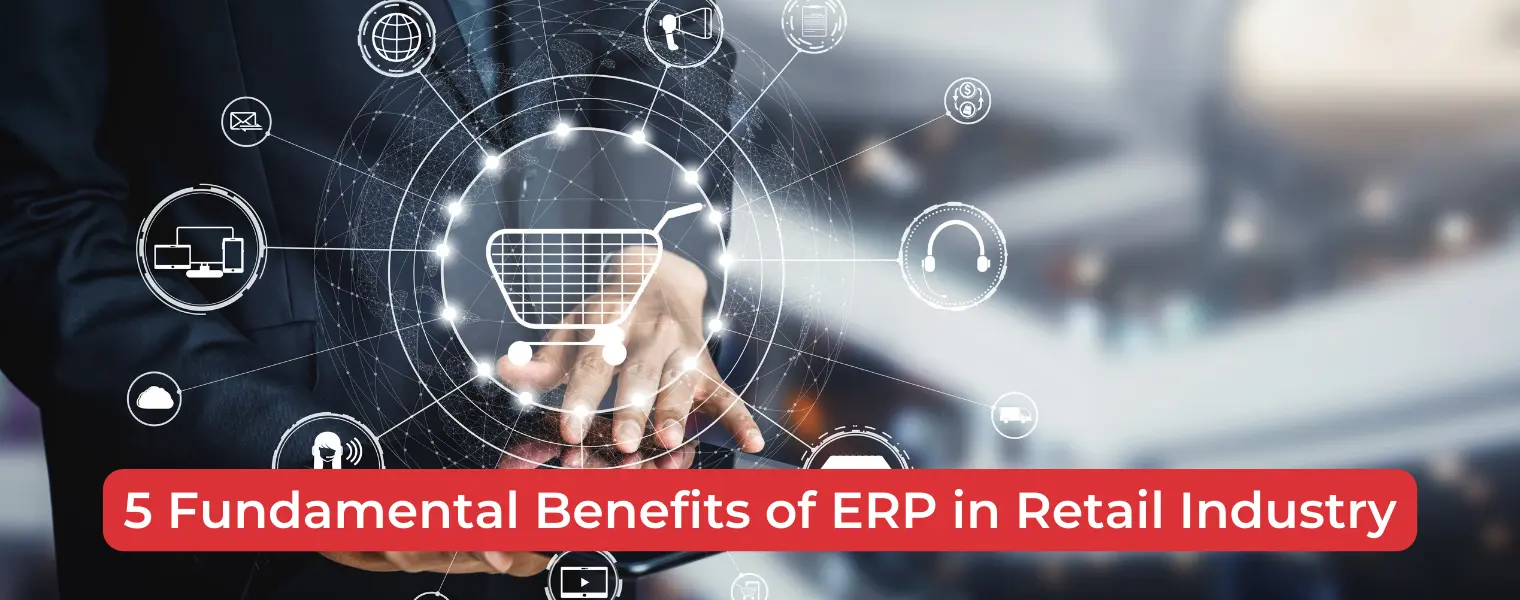
Retail is currently one of the world's fastest-growing industry. The retail sector is divided into sub-sectors, and effectively managing them is critical to maintaining or increasing profits. Fortunately, ERP in the retail industry may be the answer.
For good reason, the Enterprise Resource Planning tool has grown in popularity across the entire industrial sector in recent years. The tool enables you to manage your organization's resources with ease and simplicity. But is that the only reason to invest in an ERP system? Certainly not. The following are the fundamental benefits of using ERP in the retail industry:
The importance of information in business operations cannot be overstated. However, as your organisation grows, it becomes more difficult to synchronise data across all departments. So what are the potential consequences? For starters, a price change may not be reflected uniformly across units, allowing someone to profit from the disparity. There is also the risk of using incorrect records while rectifications are not properly reflected. The most serious flaw is the delay in information propagation, which causes a delay in overall operations and a loss of efficiency. However, ERP can address the majority of these issues. It is important to understand that the entire ERP system is based on data and information. In other words, ERP runs on information. The tool seeks and distributes real-time information to all relevant units, eliminating the possibility of error or delay.
Customer Management and Brand loyalty is like building a sandcastle on the beach, with the constant fear of losing customers. Cloud retail ERP help with Customer Management & Retention As previously stated, ERP is based on information, which can be critical once analysed. For example, you can sort customers' purchase history and select the most active ones to reward with reward points. The customer history also provides insight into customer habits, allowing you to create promotions and deals that are tailored to their specific requirements. ERP, in addition to sales and marketing, enables you to quickly resolve customer complaints. Overall, ERP gives you a unified view of all your customers and makes it available to all relevant departments in your company.
Because the retail industry primarily consists of FMCG, demand is highly volatile and dynamic. Inventory management is a critical issue in retail because both excess inventory and a failure to meet demand can result in financial losses. Retail ERP includes inventory management as a standard feature. It saves information about your entire inventory, including individual product details. This ensures that you know exactly what is in your inventory and which items will run out of stock. It also monitors shelf life and alerts users when a product is about to expire. ERP also has the capability of forecasting demand. If future demand rises or falls, it can be predicted by analysing past trends and customer habits. It gives you an advantage by allowing you to adjust your inventory to meet demand.
Sales are the foundation of the retail industry. The majority of decisions made in any retail business are aimed at increasing sales. ERP includes features that can help you with this. Retail ERP primarily enables you to conduct analytics on customer trends and past sales. It provides insights into which products have been popular and which have not, assisting you in deciding which products to promote and which to discard. Pricing, discounts, sales offer, and other sales-related factors can all be improved with ERP.
While the POS system is relatively new in comparison to traditional sales methods, it has become increasingly important in the retail industry. POS machines are essentially a system that monitors the transactions that take place in any retail outlet. The fact that the POS machine automatically feeds transaction details into the system eliminates the need for extra effort and the possibility of human error. ERP tools are now integrated with POS machines (both hardware and software), which is one of the main reasons for real-time data. Simply put, ERP extends the benefits of POS machines by ensuring that all transactional data is immediately reflected not only in retail outlets, but also in the central ERP tool.
ERP is important to the retail industry, especially given the fierce competition that exists today. The various benefits of ERP in the retail industry, the majority of which we discussed above, will only give you a competitive advantage. DoFort provides the Best ERP for Retail Industry. Contact our sales team to know more.
Welcome to DoFort !